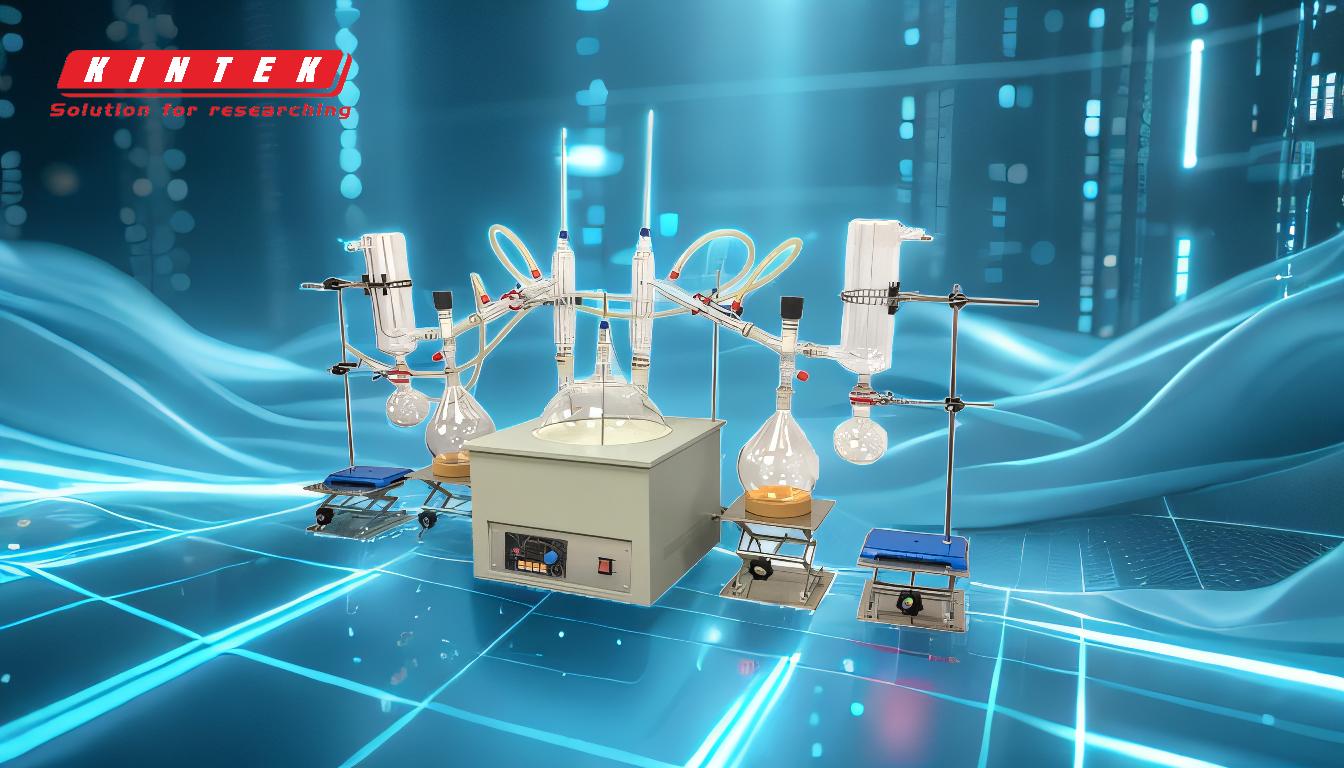Simple distillation is less effective due to several key factors that limit its efficiency in separating components with similar boiling points or in achieving high purity. The process relies on differences in boiling points, but without precise control over variables like vacuum, temperature, and system tightness, the separation becomes less efficient. Below, the reasons for its reduced effectiveness are explained in detail.
Key Points Explained:

-
Limited Separation of Components with Close Boiling Points:
- Simple distillation works best when there is a significant difference in boiling points between the components. However, if the boiling points are close, the separation becomes less effective because the vapors will contain a mixture of both components, reducing the purity of the distillate.
- This limitation is exacerbated in systems where precise control over temperature and pressure is lacking, as is often the case in simple distillation setups.
-
Dependence on System Vacuum and Tightness:
- The efficiency of distillation is highly influenced by the vacuum degree of the system. A higher vacuum lowers the boiling points of the components, allowing for separation at lower temperatures, which is crucial for heat-sensitive compounds.
- In simple distillation, achieving and maintaining a high vacuum is challenging due to potential leaks in the system, inadequate vacuum pump power, or poor-quality sealing materials. This results in less effective separation and lower distillation efficiency.
-
Inadequate Control Over Heat and Cooling:
- The temperature of the heat source (e.g., heat pot) and the cooling medium (e.g., condenser) must be precisely controlled to ensure efficient vaporization and condensation.
- Simple distillation systems often lack the fine-tuned control needed to optimize these parameters, leading to incomplete vaporization or condensation, which reduces the overall efficiency.
-
Material Limitations:
- The materials used in the distillation setup, such as sealing rings and vacuum tubes, play a critical role in maintaining system integrity and efficiency.
- Simple distillation setups may use materials like rubber, which are less resistant to wear and corrosion compared to advanced materials like PTFE. This can lead to leaks, reduced vacuum levels, and ultimately lower distillation efficiency.
-
Lack of Automation and Monitoring:
- Advanced distillation systems often include automated controls and monitoring for variables like temperature, pressure, and rotation speed.
- Simple distillation typically lacks these features, making it harder to maintain optimal conditions throughout the process, which can result in inconsistent or suboptimal separation.
-
Evaporation Bottle Speed:
- In rotary evaporation, the speed of the evaporation bottle affects the surface area of the liquid exposed to heat, influencing the rate of vaporization.
- Simple distillation systems may not have adjustable or optimized rotation speeds, leading to uneven heating and reduced efficiency.
In summary, simple distillation is less effective due to its inability to handle components with close boiling points, inadequate control over vacuum and temperature, material limitations, and lack of automation. These factors collectively reduce the efficiency and purity of the separation process.
Summary Table:
| Factor | Impact on Distillation Efficiency |
|---|---|
| Close Boiling Points | Reduces separation purity due to mixed vapors. |
| Poor Vacuum Control | Limits lower-temperature separation, affecting heat-sensitive compounds. |
| Inadequate Heat/Cooling Control | Leads to incomplete vaporization or condensation, reducing efficiency. |
| Material Limitations | Leaks and wear from subpar materials (e.g., rubber) lower vacuum levels and efficiency. |
| Lack of Automation | Makes maintaining optimal conditions difficult, resulting in inconsistent separation. |
| Unoptimized Evaporation Bottle Speed | Uneven heating reduces vaporization efficiency. |
Struggling with distillation efficiency? Contact our experts today to find advanced solutions for your lab!









